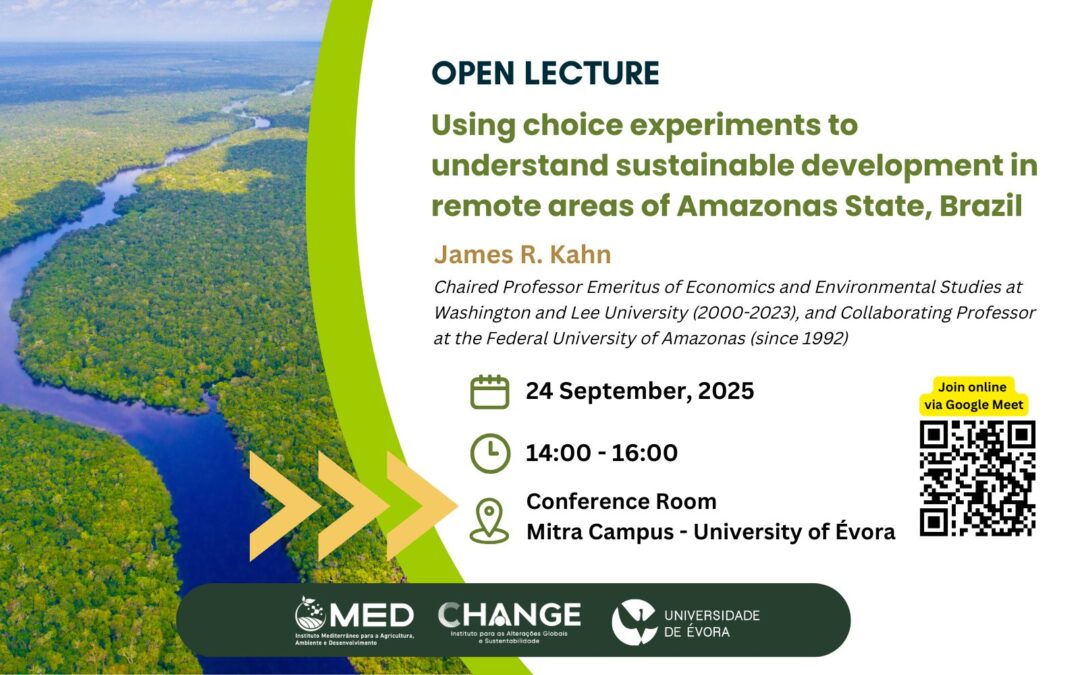Open Lecture | Using choice experiments to understand sustainable development in remote areas of Amazonas State, Brazil (James R. Kahn)
Date and time: September 24, 2025, 14:00 – 16:00
Venue: University of Évora – Mitra Campus – Conference Room
Online: https://meet.google.com/yqv-zxvz-jbr
MED invites the academic community and all interested participants to attend the open lecture “Using choice experiments to understand sustainable development in remote areas of Amazonas State, Brazil”, delivered by James R. Kahn, Chaired Professor Emeritus of Economics and Environmental Studies at Washington and Lee University (2000-2023), and Collaborating Professor at the Federal University of Amazonas (since 1992).
Abstract
This study is based on a survey carried out in nine remote communities in Barcelos, in the middle Rio Negro region of Brazil. The survey responses reveal the main obstacles to sustainable development identified by the ribeirinho populations. Choice modeling is used to assess the most important components of well-being and to determine policy preferences, including the valuation of public goods such as increasing fish populations.
About the speaker
James R. Kahn received his PhD in Economics from the University of Maryland in 1981, specializing in Environmental Economics. He has held academic positions at the State University of New York – Binghamton and the University of Tennessee. His research covers marine resources, environmental valuation, energy policy, climate change, sustainable forestry, deforestation, and sustainable development in the Amazon.
He is a past President of the US Society for Ecological Economics, served as editor of Ecological Economics, was a Research Fellow for CNPq (Brazil), and a Fulbright Scholar to Brazil. His work has been funded by numerous agencies in both the US and Brazil. He recently organized and edited the Research Encyclopedia of Environmental Economics (Oxford University Press) and has published extensively in environmental economics and interdisciplinary environmental journals. From 2000 to 2017, he directed the Environmental Studies Program at Washington and Lee University.
